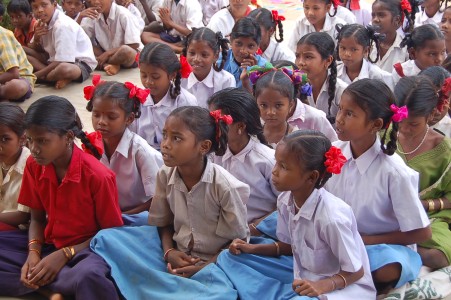Over 6,000 govt-run schools in Himachal Pradesh have less than 20 students: Report


A total of 6106 government schools in Himachal Pradesh have less than 20 students including 5113 primaries and 993 middle schools in the state, according to a report.
The number ranges between 21-60 in 4478 primaries and 895 middle schools and 61 to 100 in 681 primaries and 47 middle schools, a recent report by Unified District Information System for Education stated.
There are 18,028 schools in the state of which 15,313 are government-run.
According to the report, there are 65,973 teachers in government schools including 39,906 males and 26,257 females.
However, 12 primary government schools are running without a teacher while 2,969 have one teacher, 5,533 have two teachers and 1,779 have three teachers, it stated.
Similarly, 51 middle schools are being run by a single teacher, 416 by two teachers, 773 by three teachers, and 701 by four to six teachers, it said.
The report also stated that one secondary school with a minimum of ten classes is being run by two teachers, ten schools by three teachers, 212 by four to six teachers, and 710 by seven to ten teachers.
Even the senior secondary schools are facing a shortage of teachers and 22 schools are running with four to six teachers, 189 with seven to ten teachers, 684 with 11 to 15 teachers, and 981 schools have more than 15 teachers.
Further, the report pointed out that despite 63,690 rooms in government schools, seven primary schools are without a room, 338 are running in one room, 2,495 in two rooms, 4,111 in three rooms, and 3,402 in seven to ten rooms. Meanwhile, three middle schools are without a room, 216 have only one room, 241 are running in two rooms,1,111 in three rooms, and 352 in four to six rooms.
The situation is no better in secondary and senior secondary schools with a minimum of ten and 12 classes respectively. As many as six secondary schools are being run in one room, 25 in two rooms, 117 in three rooms, 697 in four to six rooms, and 74 in seven to ten rooms.
Similarly, one senior secondary school in the state is functioning in a single room, seven in two rooms, 17 in three rooms, 245 in four to six rooms, 947 in seven to ten rooms, 454 in 11 to 15 rooms, and only 205 schools have more than 15 rooms.
Schools have been opened to comply with the guidelines of the Right to Education Act. As per the act, there has to be a primary school within 1.5 km for school-going children but due to tough demography and topography in the hill state, the strength of students is low but still they have to be taught. However, the rationalism of teachers is an issue, officials in the education department said.
The student-teacher ratio is 14.68 in the primary section, 12.09 in middle schools, 10.38 in secondary, and 12.31 in senior secondary schools, they said.
The general enrollment is 100% or above in primary, middle, and secondary levels and 90% in the senior secondary level while the dropout rate is 0 percent at the primary and elementary levels and 1.47% at the secondary level, they said.
The sustained efforts of the state government to shift students from the government to private schools have yielded results as enrollment in government schools has increased by 37,952 during 2021-2022, the report said.
However, enrollment in all schools in the state registered an insignificant decrease of 1,067 as compared to a drop of 26,154 in 2020-21. The total enrollment in all schools dropped from 13,33,315 to 13, 32,148 but the enrollment in 15,313 government schools stood at 8,31,310 in 2021-22 compared to 7.93,358 in the previous year.
Director of higher education Amarjeet Sharma said, the “Har Ghar Patshala” initiative introduced during the pandemic and the use of information and communication technology in government schools has brought them at par with the private sector and we are now focusing on academics, sports, and co-curricular activities for the overall development of the children.
He said the high fee structure during the pandemic in private schools also compelled parents to shift to government schools.